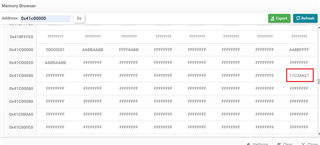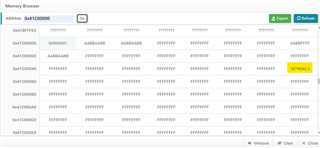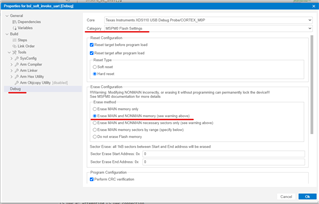Other Parts Discussed in Thread: SYSCONFIG, UNIFLASH
Tool/software:
Hi, I recently tried to test ROM Based BSL on my LP-MSPM0G3507 EVKs. On one of which, I upload and tested bsl_soft_invoke_uart and I used "bsl_host_mcu_uart" example to download the image the previous EVKs.
Both were working as expected.
Now I want to try out the secondary Flash Based BSL, so I tried to load the "secondary_bsl_uart" example into one of the EVKs but I got this error.

So I tried to factory reset according to Chapter 5.2 in "MSPM0 Bootloader (BSL) Implementation" document.

though I followed the exact steps, when I pressed "Factory Reset Auto" button,

the factory steps has been implemented accordingly,
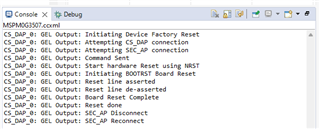
but in the end, it always hanged at this
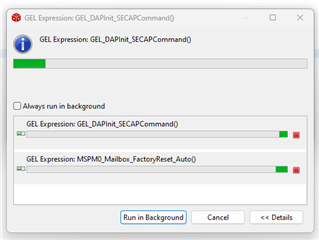
and the factory reset couldn't be executed.
And yes, I have edited NON-MAIN configuration as I don't want hardware pin invoke for BSL example.
I even tried all the same steps in another EVK which also showed the same symptons.
How can I resolve this? Thanks so much in advance.



